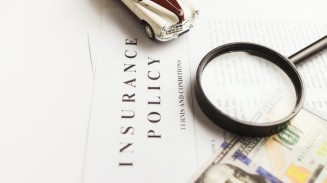Getting into a car accident can be a terrifying experience for anyone to endure. If any vehicle requires repairs or any person involved gets injured, you'll likely want to find out who's liable to pay for the damages that have been incurred. Oftentimes, those who win up having to pay these damages are those who were found to have been negligent, meaning their failure to act in a reasonably safe manner is what caused or contributed to the accident happening.
Negligence in this manner can difficult even for those well-versed in the legal profession to determine, so for everyone else, it can be even worse. Here's the basics of how negligence works in car accidents, and what you'll want to ask yourself in the wake of an accident.
What is negligence, anyway?
Negligence is more than just not doing what you were supposed to in a given situation. In the legal world, negligence has more specific meanings that are very important for forming a robust legal argument in car accident cases. In most cases, negligence refers to the failure to carry out the reasonable care and safety that any normal person would be expected to fulfill while operating a vehicle. If you are found to have been negligent in the lead up to a car accident, you are determined to be at least partially at fault for paying damages. In order to prove that a driver was negligent, your legal team will need to provide as much evidence and documentation as possible.
There are many driving scenarios where you could easily be found negligent: speeding, using your phone, not using your lights at night, driving too close to the vehicle in front of you, running a red light, and so on. In normal situations, you are expected to drive at a safe speed, focus on the road in front of you, and maintain a safe distance.
Another of the most common forms of negligence is a failure to maintain the good condition of their vehicle. If your brake pads were in dire need of replacement or your headlights had failed, and you didn't replace them, the other party involved in the car accident can reasonably assert that you were negligent in your duties to maintain a road-safe vehicle. Often, drivers who were negligent can find themselves at the receiving end of an expensive lawsuit, which is where personal injury lawyers come into play.
Check out this website if you're looking for a personal injury lawyer but understand that the best legal defense in any case is to thoroughly document what happened in an effort to prove you weren't negligent leading up to the car accident in question. Your legal experts should begin by quizzing you about what happened and whether there's evidence to back up your claims, as being able to prove what occurred is a necessary part of making a personal injury claim related to negligence on someone else's part.
Know the elements of your claim
If you're going to claim that the other driver involved in the accident was negligent, you need to understand the elements of the legal claim you're making. If the law required the defendant to exercise caution and they failed to do so, you likely have a strong claim. For instance, the law requires drivers to stop at red lights and stop signs, but if the defendant obviously ran a red light and crashed into your vehicle, you can argue that they failed to reasonably obey the rules of the road, thereby becoming responsible for the ensuing incident and damages.
However, to have a successful claim you need to show proof of negligence with both quality and quantity of evidence. Reviewing the elements of a negligence claim can help you determine if you or someone else was strictly at fault for the car accident that's been giving you grief. Documenting the incident in question and having evidence to support your argument is instrumental towards your success - take pictures of the scene on your phone, get the contact information of witnesses, get a copy of the police report as well as any medical reports or mechanic repairs you had to pay for. If you fail to document the ways that the defendant violated traffic laws or common sense standards, you'll struggle to win a lawsuit against them regardless of how severe the damages incurred were.
The CDC claims that around 40,000 deaths occur every year as a result of motor vehicle traffic collisions, so don't fool yourself into thinking that negligence is some small matter which can be ignored. If you were involved in a car accident that resulted in the serious loss of life of one your passengers, or serious injuries, you and everyone else involved could quickly become engulfed in a fierce, expensive legal battle over who was at fault.
Take negligence in car accidents seriously, thoroughly document what happened, and speak to authoritative legal experts before pressing any claims against other drivers. Above all else, remember to drive safely and to rigidly follow the rules of the road, as those drivers who exercise common sense, safety standards, and the right of way will be insured from most negligence claims.
© 2023 Lawyer Herald All rights reserved. Do not reproduce without permission.
* This is a contributed article and this content does not necessarily represent the views of lawyerherald.com
Get the Most Popular Lawyerherald Stories in a Weekly Newsletter





